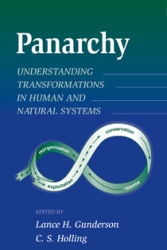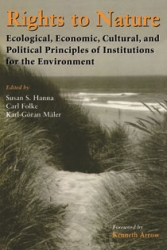
C. S. Holling
C.S. "Buzz" Holling is an Emeritus Eminent Scholar and Professor in Ecological Sciences at the University of Florida. Holling is one of the conceptual founders of ecological economics. Holling received his Ph.D. at the University of British Columbia. He worked for the Canadian Department of Forestry, the Institute of Animal Resource Ecology, and the International Institute for Applied Systems Analysis.
He has been awarded two major awards from the Ecological Society of America, the Mercer Award and the Eminent Ecologist Award. He also received the Kenneth Boulding Memorial Prize and an Honorary Doctor of Science from the University of Guelph. He is a Fellow of the Royal Society of Canada, a foreign Fellow of the Royal Swedish Academy of Sciences, and has been awarded the Austrian Cross of Honor for Arts and Science.
He was founding editor-in-chief of Conservation Ecology, now renamed Ecology and Society. He was also the founder of the Resilience Alliance.
Throughout his research, Holling has blended systems theory and ecology with simulation modeling and policy analysis to develop integrative theories of change that have practical utility. He has introduced important ideas in the application of ecology and evolution, including resilience, adaptive management, and population. His work is also frequently cited in the fields of ecological economics and the human dimensions of global change.




